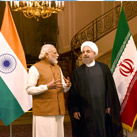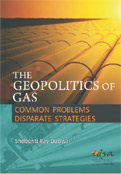Houthis and external intervention in Yemen
The failure of the government to stem Houthi-led violence and the involvement of the external powers in Yemen’s sectarian problems has aggravated the country’s stability. Yemen has been turned in to a theater of conflict between Saudi Arabia and Iran.
- Prasanta Kumar Pradhan
- November 25, 2009








